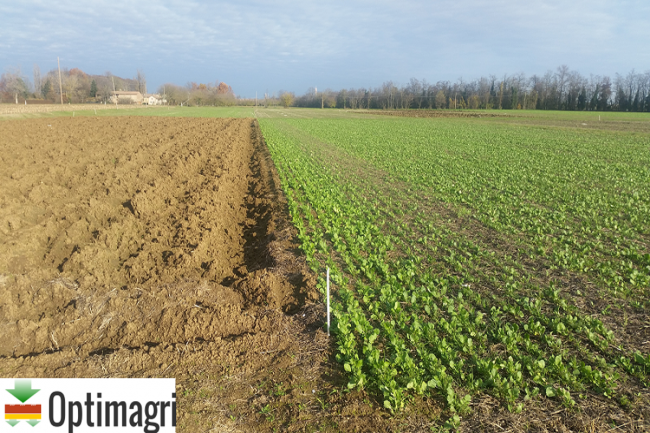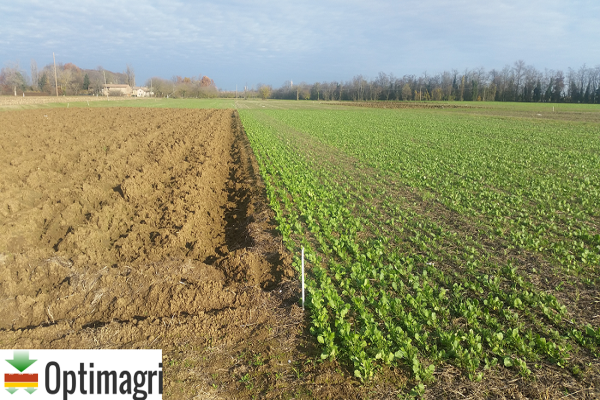Optimization of conservation agricultural systems through better management of cultivation techniques

The main objective of the project is the protection of natural resources that sustain food production, especially soil conservation. The way selected for the achievement requires the application of conservation cropping systems, through the introduction of techniques and agronomic practices that favor the accumulation of organic matter in the soil, reducing the mineralization, and which lead to a more rational use inputs. In this regard, another objective is to reduce the use of synthetic mineral fertilizers (especially nitrogen), which are used at the doses and timing of actual needs, in order to reduce the pollution generated by agricultural activity and improve the quality of waters.
In all the farms it will be introduced conservation agricolture practices coupled with precision farming technologies. On the trial fields, ones plots will be managed in no-tillage: in all the farms will be set comparisons between conservation agriculture(no tillage) and conventional agriculture. Precision agriculture practices will include GPS on tractors and harvest machines, yield monitoring and mapping systems to set variable rate fertilizations for the next crops. Introduction and use of barrels to direct injection treatments (such easy boom system)
The research project wants to compare an intensive agricultural system, based on deep plough and on high use of external inputs (Conventional Tillage), with a conservative farming system, where tillage operations are minimized or even eliminated (No-Tillage).
In particular, in conventional tillage, the progressive decrease in soil fertility will be documented, mainly due to: low organic matter content, deterioration of the soil structure and decrease of biodiversity. In contrast, in conservation agriculture, which adopt no-tillage, soil cover and appropriate crop rotation, the benefits of this farming techniques will be evaluated, especially organic and water availability, consolidation of soil aggregate stability, the activity of microorganisms and micro and mesofauna.
Moreover, the application of precision farming techniques will allow to reduce: costs, wastage in terms of inputs and the environmental impact of agricultural activity. Secondly, the combination of precision farming and conservation agriculture practices will generate instrumental tests, with the purpose of calibrating the farming operations in different soil characteristics.
The main effects of this project for farms consist in the identification and setting of innovative agricultural systems, which could increase the environmental sustainability and the efficiency of inputs use, supporting the increase of fertility.
In the three farms participating in the project, comparison tests were set up between the conventional agricultural system (CT), and a conservative agricultural system, in which traditional tillage is completely absent (NT). In the NT thesis, during the unproductive season, cover crops or autumn-winter cover crops (CC) were sown. At the end of each growing season, production yields were determined and samples were taken to determine the organic matter and structure index (0-10 and 10-30 cm), the number of earthworms (20x20 x20 cm) and soil biodiversity (QBS-ar index: 10x10x10 cm).
| Titolo/Descrizione | Url | Tipologia |
|---|---|---|
|
Project web page
|
Sito web
|
|
|
Stuard research farm
|
Altro
|
|
|
Tadini research farm
|
Altro
|
|
|
Article on local online paper
|
Link ad altri siti che ospitano informazioni del progetto
|
|
|
CRPA (dissemination partner) website
|
Link ad altri siti che ospitano informazioni del progetto
|
|
|
Video Final results of the project
|
Materiali utili
|
|
|
Relazione tecnica finale
|
Materiali utili
|
